This year’s Empress Theophano Prize is awarded to The United Nations in the name of Mr. António Guterres, United Nations Secretary-General

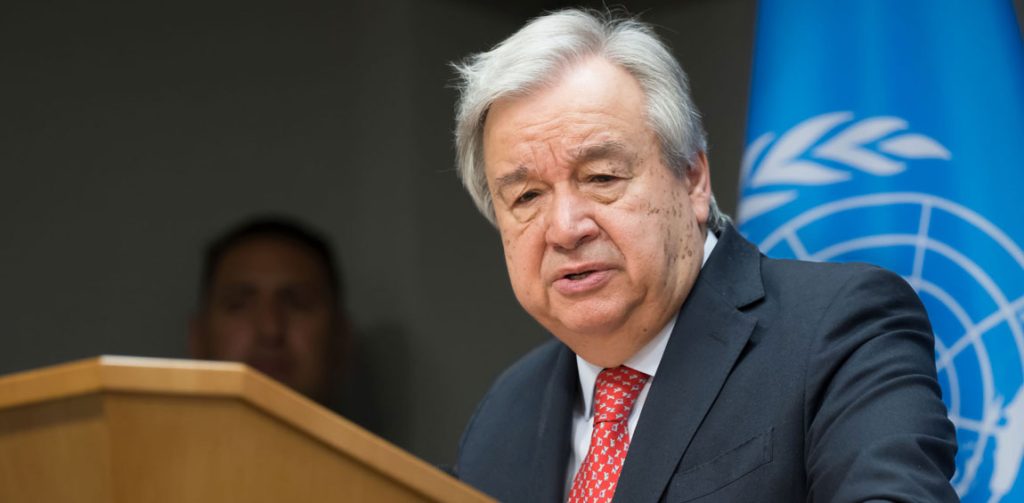
Thessaloniki, 6 September 2023 – The 4th Award of the pan-European Empress Theophano Prize is awarded to the United Nations in the name of Mr. António Guterres, United Nations Secretary General, a global leader of the world’s largest international organization that fosters multilateral collaboration. The ceremony will take place on Thursday 9th November 2023 in Thessaloniki, at the monument of the Rotunda, a symbol of multiculturalism. Η.Ε. the President of the Hellenic Republic Ms Katerina Sakellaropoulou will honor the event with her presence.
Following the awards on Education, Science and Art, this year the Theophano Foundation focuses on the key role of humanitarianism, especially under the prism of multilateralism as a catalyst to address global challenges. In this context, the awarding of the Empress Theophano Prize 2023 to the United Nations is in recognition of this institution’s valuable contribution to building bridges between nations, its commitment to peace and its work in strengthening international cooperation spanning from sustainable development, disarmament, human rights and women’s rights to counter-terrorism and the protection of the planet. All these accomplishments which had made humanity safer and more prosperous, are ideals that are at the core of the Theophano Foundation’s basic principles.
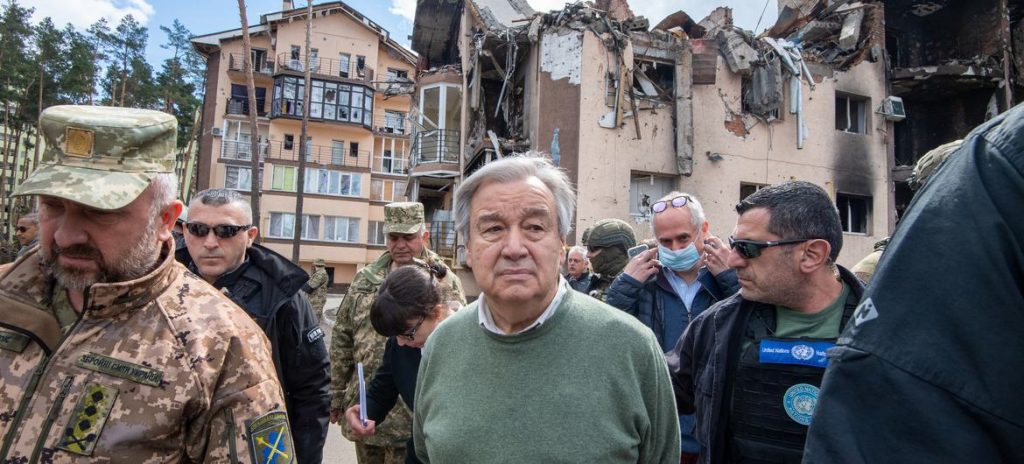
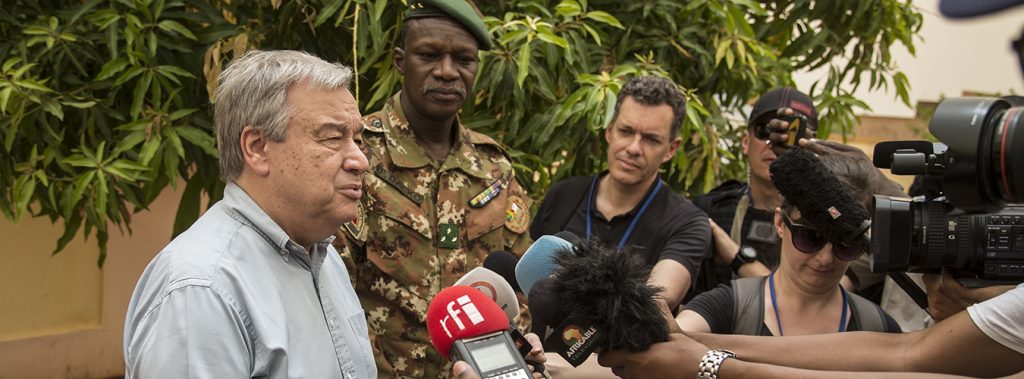

By bestowing the Empress Theophano Prize to Mr. António Guterres who leads and represents the United Nations, the Foundation is also honoring his long service and his unwavering commitment to address global issues with an eye on future generations. The Secretary-General has spared no effort traveling the world, using his good offices to muster global support and seek compromise over complex geopolitical and social issues embracing a spirit and paradigm of political responsibility. In his own words: “We have to transcend our differences to transform our future”.
The Award Ceremony will be attended by leading personalities from Europe and Greece.
MORE INFORMATION: www.theophano.eu
The Theophano Prize has been created in order to reward individuals or organizations which have made or are making an outstanding contribution to building bridges among people, nations, ideologies, to improving mutual understanding of our diverse roots.
Since the establishment of the Prize in 2019, this initiative expresses in the most noble way the imperative narrative and urgent need for contemporary cooperation: in 2020 the Prize focused on Education, awarded to the Erasmus Program of the EU Commission, and received personally by President Ursula von der Leyen. In 2021 the focus was on Science: Dr. Uğur Şahin and Dr. Özlem Türeci, the scientist couple who developed the first vaccine against the coronavirus, where the recipients of the award for their dedication to the Common Good. Last year, 2022, the Prize highlighted the key role of Art as a common ground for mutual understanding and awarded the world-renowned conductor, Mr. Daniel Barenboim and his initiative of West-Eastern Divan Orchestra, a highly symbolic project for building bridges between peoples.
The Prize is awarded every year in the historic Rotunda in Thessaloniki, a landmark monument and a heritage site signifying the Roman, Byzantine, Orthodox, Ottoman, and Greek influence, historically reflecting the multicultural influences of Europe.
CONTACT: Vicky Papadimitriou, Project Coordination | E: info@theophano.eu | T: +30 6937 229858
The Award Ceremony is sponsored by:

Official air carrier sponsor:

With the kind support of:

THE 2020, 2021, 2022 EMPRESS THEOPHANO PRIZE
THEOPHANO PRIZE 2020 The 2020 Empress Theophano Prize at a glance
THEOPHANO PRIZE 2021 The 2021 Empress Theophano Prize Ceremony at a glance
THEOPHANO PRIZE 2022 Ceremony Speeches & Ceremony Video


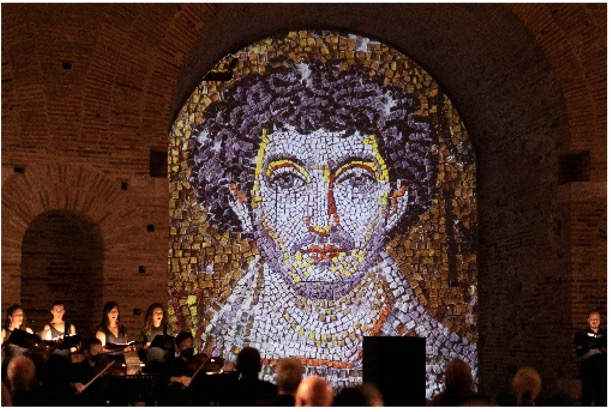





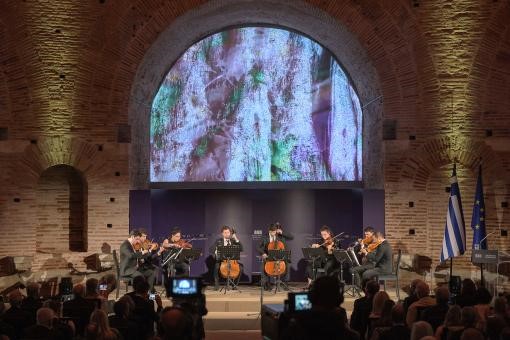


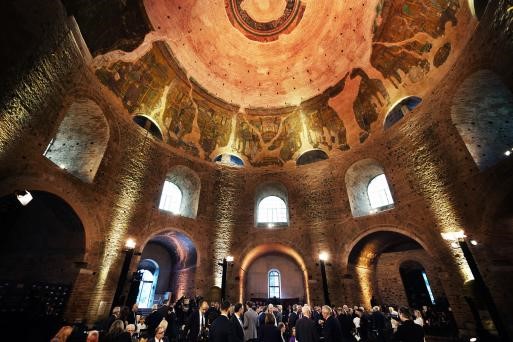
The Advisory Council
Chairman
Herman Van Rompuy
President Emeritus of the European Council
Former Minister of State of Belgium (BE)
Members
Mary McAleese
Former President of Ireland | Professor of Children, Religion and Law, University Glasgow (IRL)
Leonie Bell
Trustee Edinburgh International Festival | Director Victoria & Albert Museum Dundee (UK)
Nikiforos Diamandouros
Former European Ombudsman (GR)
Élisabeth Guigou
President, Anna Lindh Foundation | Former Secretary of State (F)
Tarja Halonen
Former President of Finland (FI)
Agnieszka Holland
Author and film director (PL)
Maria Luisa Poncela
Former Secretary of State (ES)
Michel Praet
Vice-President Museum of European History (BE)
Georges Prevelakis
Professor Emeritus, Paris-Sorbonne University (FR)
Sir Ivan Rogers
Former UK Ambassador to the EU (UK)
Chiara Saraceno
Honorary fellow Collegio Alberto, University of Turin (IT)
Vassilios Skouris
Former President, European Court of Justice of the EU (GR)
Karl Prince zu Schwarzenberg
Former Minister of Foreign Affairs (CZ)
Rita Süssmuth
Former President of the German Parliament (DE)
Panos Tzonos
Professor Emeritus, Aristotle University of Thessaloniki (GR)
Luuk Van Middelaar
Professor of EU Foundations and Institutions, University of Leiden (NL)
The Governing Council
Chairman
Stavros Andreadis
Chairman, SANI/IKOS Group
Chairman, Cultural Society of Entrepreneurs of Northern Greece (GR)
Members
Nikolaos Efthymiadis
Chairman, EFTHYMIADIS Agrotechnology Group
Honorary Chairman, Federation of Greek Industries (GR)
Evangelos Gerovassiliou
Chairman, Gerovassiliou Wines (GR)
Constantinos Gleoudis
Chairman, KAVEX
Member of the Board, Hellenic Society for the Environment and Cultural Heritage (GR)
Theodoros Ikonomou
Chairman, Greek Forest Property Association
Head of a forest management and wood production firm (GR)
Nada Korac Kakabadse
Professor of Policy, Governance and Ethics, Henley Business School, University of Reading (UK)
George Mylonas
Chairman, ALUMIL Group (GR)
Sonja Puntscher-Riekmann
Professor Emeritus of Political Theory and European Politics, University of Salzburg (AT)
Stefan Schepers
Secretary General, High Level Groups on Policy Innovation (BE)
Vassos Konstantinidis
Chairman, INART (GR)
Empress Theophano
Empress Theophano, who inspired this prize, is a historic figure of Europe who played a significant role in its development during the 10th century.
The niece of Emperor John I Tzimiskes, she married Otto II and was crowned Holy Roman Empress as his wife. Following his death, she maintained the title of Empress. Her historic presence in Western Europe, dedicated to improving relations between East and West, offered a positive contribution to the cultural renaissance of western European territories, introducing to the west the central role women had in Byzantine society and transferring significant influence from the flourishing Byzantine empire in the fields of education, the arts, commerce, and health, while working to advance civil governance, promoting it over the military.
Empress Theophano is buried at the Cathedral of St Pantaleon in Cologne, Germany.
The Rotunda Monument
The emblematic monument of Thessaloniki, was constructed in the early 4th century AD, on the turning point between the pagan with the Christian world, probably as a temple for ancient cult worship or as a mausoleum for Constantine the Great (306-337). This circular, domed building measures 29.80 meters in height, 24.50 meters in diameter, its walls are 6.30 meters thick and can only be compared architecturally to the Pantheon in Rome. Not long after it was built and during the early years of the long-lived Byzantine Empire (330-1453), the Rotunda was turned into a Christian church with the addition of a sanctuary on its eastern side. The interior was decorated with Early Byzantine (4th- 6th c. AD) wall mosaics of unique artistry and beauty. It was Thessaloniki’s cathedral church (metropolis) between 1524 and 1591, the year in which it was converted to a mosque by the Ottoman conquerors. It remained in use as a mosque until the city’s liberation in 1912. Its dedication since that time to Saint George (Agios Georgios) is owing to the small neighboring church of this name. The mosaic decoration of the Rotunda is a masterpiece of Late Antique art.
Text source: http://galeriuspalace.culture.gr/en/monuments/rotonta/
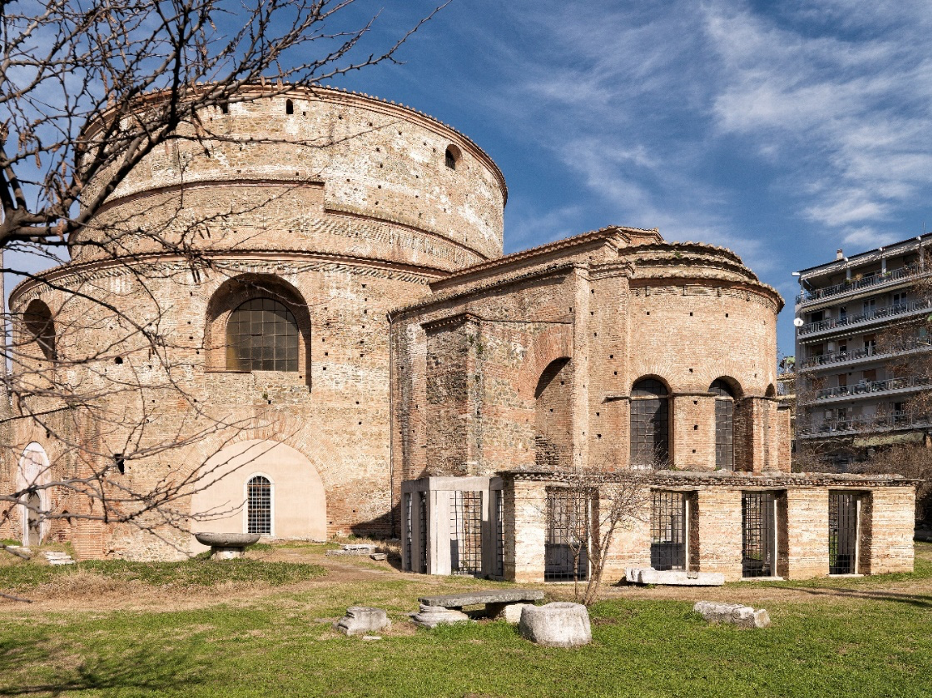
Photo credits: Ephorate of Antiquities of Thessaloniki City.
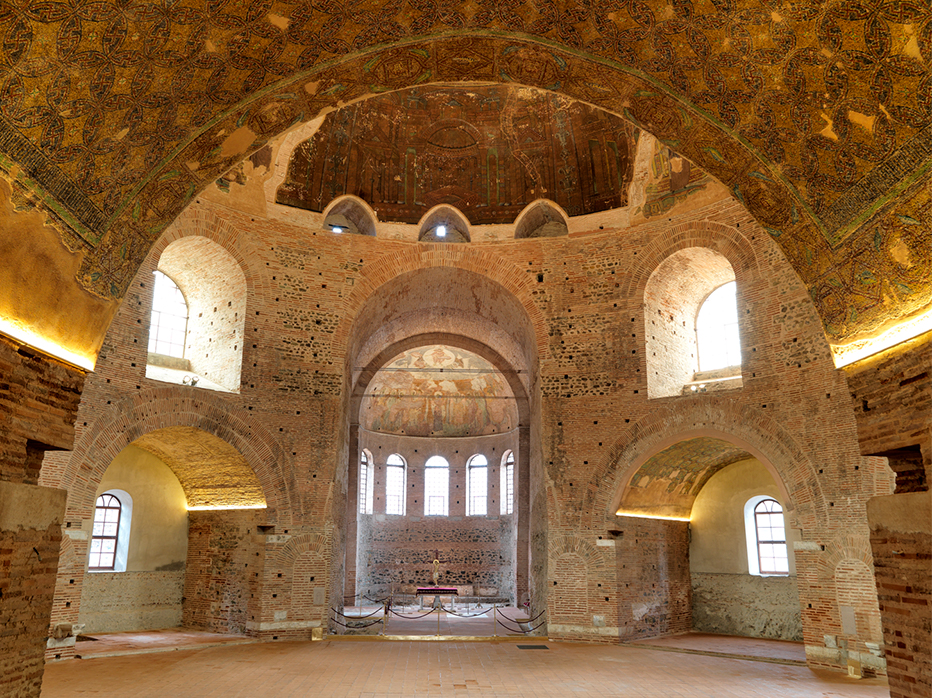
Photo credits: Studio 8 Photos, Efi Panagoula.
